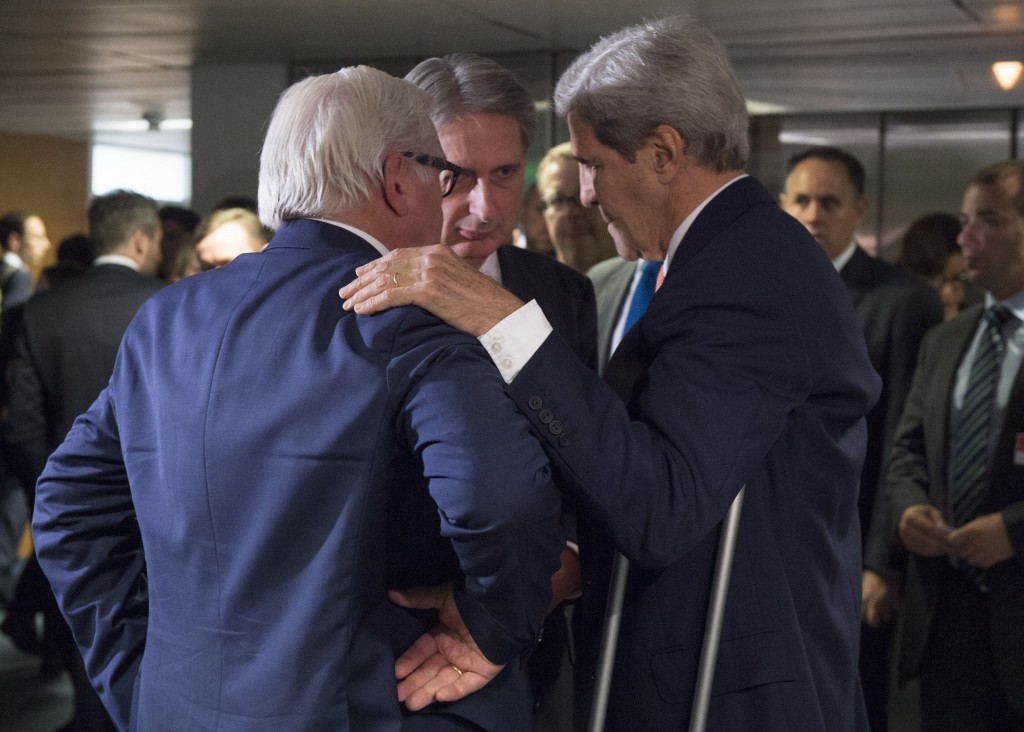
Israel’s nuclear affairs minister said his country was like the boy in the fairy tale who pointed out the emperor had no clothes, heaping scorn on the Iran nuclear deal on Wednesday and emphasising Israel’s right to unilateral self-defence.
Tuesday’s agreement between six world powers and Iran has left Israeli officials scrambling for leverage and crying foul, convinced the historic deal will do little to curb Tehran’s nuclear ambitions and will leave Israel under greater threat.
“Israel is like the little child that is pointing its finger and saying the king is naked, this agreement is naked,'” Yuval Steinitz, who is responsible for nuclear affairs in Prime Minister Benjamin Netanyahu’s cabinet, told reporters.
Despite months of trying to stall or derail the agreement, including Mr Netanyahu denouncing it before a joint session of the US Congress in March, Israel has failed to exert influence on the US, its closest ally, and is feeling exasperated.
Netanyahu spoke to Barack Obama on Tuesday evening and issued a lengthy statement afterwards that sought to explain that his poor personal relationship with the US president had had no bearing on the outcome of the negotiations in Vienna.
“The claim heard from political elements to the effect that the personal relationship between myself and President Obama affected the nuclear agreement is absurd,” he said.
“Even before I took office as prime minister, there was an intention on the part of the American administration to normalize relations with Iran.”
Mr Steinitz described the deal, painstakingly negotiated over the past several years, including 17 straight days before Tuesday’s signing, as full of loopholes, particularly when it comes to verification and Iran’s “breakout” capability – the time it would theoretically take it to develop a nuclear weapon.
Israel is also agitated by the fact that Iran will have access to around $100billion of frozen assets as soon as the deal is implemented, which is expected to take six months.
“Those who think that giving Iran $150billion will have no effect on the Middle East are naive,” said Mr Steinitz, adding: “It’s like pouring fuel on the burning Middle East.”
As well as the long-term nuclear threat, Israel’s alarm stems from Iran’s backing for militant groups in the region, including Hezbollah in Lebanon and parts of Syria, Hamas in Gaza and the Houthi rebels in Yemen.
“(We are) this little, tiny Jewish democracy that survives in the most difficult and problematic neighbourhood on the face of the earth,” Mr Steinitz said.
While small, Israel has a strong army, is believed to have the region’s only nuclear arsenal, and receives around $3billion a year in military-related support from the US, an amount expected to increase following the Iran deal.
Asked what extra weapons Israel might request from Washington, Mr Steinitz would not be drawn, saying the only acceptable compensation would be an agreement that prevents Tehran producing nuclear arms.
In the interim, he said, Israel reserved the right to defend itself and would do so unilaterally if required.
He added: “Israel’s right of self-defence is non-negotiable and cannot be limited by any international agreement, good or bad.
“When a country like Iran is calling once again, even in the last few days, for Israel’s destruction, Israel of course has the right, and also the duty, to defend itself by itself.”
With the US and other major powers determined to work with Iran, Israel finds itself allied with Saudi Arabia, Jordan and the Gulf states in expressing wariness over the deal.
Domestically, though, it has served as a unifying force in Israeli politics. The centre-left opposition is fully behind Mr Netanyahu’s criticism of the deal and there is the possibility of a new national-unity government being formed as a result.